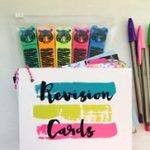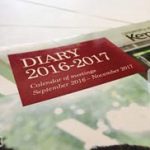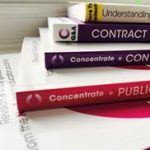It has been two months since university has started. By now first years, you’ve realised the huge step from sixth form/college to university; more independent, more preparation and definitely more organisation. But you still feel like you don’t know what to do. That’s how I felt in my first year: lost and perplexed. And now that I am reflecting back on my first year, I wish I had done some things differently. But we learn from our mistakes, and it is important to guide those who are currently in similar situations.
Here are five things I wish I had done during my first year:
 1. Every week or two weeks, go through the contents of each module of what you have learned so far. Make little revision cards, create colourful mind maps or posters, do what ever you like, but ensure that you have understood what you have learned. If you continue to do this every week or two weeks for an hour or more, you will 100% remember most of the contents once nearer to the exam. By doing this revision exercise, you will increase your confidence and have a better understanding of the contents.
1. Every week or two weeks, go through the contents of each module of what you have learned so far. Make little revision cards, create colourful mind maps or posters, do what ever you like, but ensure that you have understood what you have learned. If you continue to do this every week or two weeks for an hour or more, you will 100% remember most of the contents once nearer to the exam. By doing this revision exercise, you will increase your confidence and have a better understanding of the contents.
 2. Have a diary; believe me this is going to be so helpful! I did have a diary at the beginning, however, as the year progressed, I eventually forgot that it even existed. But, having a diary means you can write down all the due dates of your assessments, important meetings, society events, seminar preparation, anything you want; your diary will be your friend. And the best thing is, you can be as creative as you like. This will prevent you from forgetting important dates!
2. Have a diary; believe me this is going to be so helpful! I did have a diary at the beginning, however, as the year progressed, I eventually forgot that it even existed. But, having a diary means you can write down all the due dates of your assessments, important meetings, society events, seminar preparation, anything you want; your diary will be your friend. And the best thing is, you can be as creative as you like. This will prevent you from forgetting important dates!
3. Start assessments early (very early, not two weeks early). This is an obvious one but once you start your seminar work, you feel obliged to finish that first before even starting your assessments. Sometimes, we need to prioritise important things first. Always allow yourself plenty of time before starting an assessment; research the necessary contents, read books/journals and meet your seminar leader during their office hours. They are here to help you and guide you towards a successful assessment.
4. Catching up with the reading. Make sure that you always catch up with all the reading that you have missed. Every page counts towards revision, exams and assessments. If you don’t understand what you’re reading or would prefer a more simplified version of what you’re reading, revision guides are always useful. They’re easy to read and much  cheaper BUT it is advised to read the core text books (as outlined in module guides). When the reading during the terms were heavy, I felt that the revision guides were a quick way to understand the contents before going through it in more depth in seminar classes.
cheaper BUT it is advised to read the core text books (as outlined in module guides). When the reading during the terms were heavy, I felt that the revision guides were a quick way to understand the contents before going through it in more depth in seminar classes.
5. And most importantly, don’t miss lectures! We feel down some days, ill other days, and lazy most days but let this not stop you from missing out any lectures. Some are recorded but going to live lectures will (in my opinion) give you a better understanding of the contents. And what is more useful is if you re-listen to the lectures online (if they are recorded), you can pause, repeat, forward the lecture, listening to every point the lecturer said. This is a great way of revising contents that you do not understand.
Remember that everything you do counts towards your degree. Do not let anyone influence the decisions you make, only you can make the right choices in life. And eventually you will achieve the things you always wanted to achieve!
